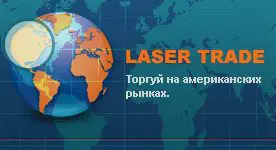How does an Algorithmic trader differ from an intuitive one??
They have different approaches to trading. Алгоритмический trader должен сначала протестировать свою систему на исторических данных и проверить как она вела себя бы в тех условиях. It should be noted that an algorithmic trader is, at all, a very broad concept and many understand it differently. A very common opinion that an algorithmic trader is only one who deals with HFT, or some arbitration, who writes codes in R, Pythons, etc.. And with all this, is working on increasing the latency of sending trade orders in order to open a deal faster than anyone else and close it immediately with a profit in a millisecond. This is all, certainly, Okay, but in my opinion, algorithmic trading is not limited to this. For example, dealer, created a trading system on weekly time frames based on the Bollinger Band indicator, tested on history in a couple of decades, this is also algorithmic trading, if a, certainly, when trading will strictly follow the algorithm.
Everyone knows that it is very difficult to create a profitable algorithmic system., if at all, maybe. And such, which is almost without drawdown, no unprofitable months, notoriously impossible task. I immediately sweep aside the pseudo systems, which are optimized on history using various tricks, since this is a waste of time and will not make money in real life. But such systems look very attractive..
So here, a trader has created a normal trading system that exploits some kind of market inefficiency and looks at its Equity — of course there are long and deep drawdowns, even not only a few months long, but also a year, although in the end, over a long period of time, yet, grows with acceptable returns. Can, be sure to look further for a system with better results, but not the fact that such a system exists, but you can search for the rest of your life and not find. Therefore, the algorithmic trader will stop at this far from perfect system., since he has nothing better, well aware of what awaits him — long drawdowns, a string of losing trades, and hence the headache and the likelihood of losing faith in the system, because, what if the market changes and the system no longer earns.
Now, let's imagine that an algorithmic trader shares his trading system with an intuitive trader. It seems that the system earns for a long period of time, but with such unprofitable periods, an intuitive trader will definitely not want to trade. After all, if he agrees to trade it, then voluntarily condemns himself in advance to long periods of failure and loss. What he, fool or something, because if he starts trading intuitively, then he has the hope that unprofitable periods can be avoided and, with self-improvement, to achieve that his trade will become, at all, break even. Why voluntarily condemn yourself to losing trades.
So, what am i talking about? :)
All in all, I think, the point is that the algorithmic trader will not survive, doubts will overcome him in critical periods and he will stop his trading at the most inopportune moment. And an intuitive trader will never become perfect and will not learn to trade only profitably.. And also, at some critical moment will lose faith in their abilities, stop trading and go to smart lab to teach newcomers to profitable trading.

